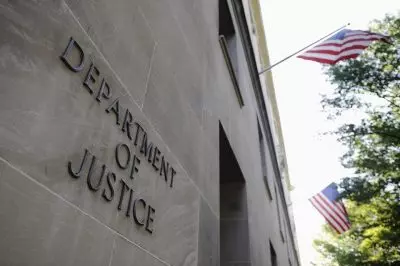 The online gambling sector in the US turned out lucky in the middle of the week, as a federal appeals court upheld the decision that the 1961 Wire Act applies to sports betting services only.
The online gambling sector in the US turned out lucky in the middle of the week, as a federal appeals court upheld the decision that the 1961 Wire Act applies to sports betting services only.
On January 22nd, two judges of the US Court of Appeals for the First Circuit backed the New Hampshire Lottery Commission’s opinion against the Department of Justice (DOJ). The two-judge panel ruled that the prohibition on communicating betting information across state lines under the provisions of the 1961 Wire Act applies only to sports betting services and to no other form of gambling.
The ruling of the US Court of Appeals is extremely important, as states that have already made online poker legal would be given the chance to share player liquidity with other states where similar legislation has been enacted. For the time being, Nevada, New Jersey and Delaware are the only three states that have entered into such agreements but the court’s ruling has made it possible for other states to do the same.
The decision finally brings a lengthy saga, which started in 2018, to an end after an opinion issued by the Office of Legal Counsel reversed a 2011 opinion of the same office under which the 1961 Wire Act applied to no other form of gambling, and online lottery sales in particular, but to sports betting events.
DOJ’s Decision to Reverse 2011 Ruling Served Late Sheldon Adelson’s Interests, Experts Say
How did it all start?
 Back in 2011, the DOJ’s Office of Legal Counsel issued an opinion to respond to state lotteries’ queries asking whether they could sell lottery tickets online in case they exchange data with other states. The Office of Legal Counsel concluded that the 1961 Wire Act applied only to sporting events or contests, with this opinion basically opening the door to US states to roll-out interstate online gambling markets.
Back in 2011, the DOJ’s Office of Legal Counsel issued an opinion to respond to state lotteries’ queries asking whether they could sell lottery tickets online in case they exchange data with other states. The Office of Legal Counsel concluded that the 1961 Wire Act applied only to sporting events or contests, with this opinion basically opening the door to US states to roll-out interstate online gambling markets.
A few years later, in 2018, the President Trump Department of Justice effectively reversed the previous decision, with the action being largely considered as a special act of goodwill to casino owner Sheldon Adelson, who had announced he was against online gambling a few years earlier. Despite a widely held belief that the 2011 opinion was the right one, Assistant Attorney General Steven Engel reversed it, saying that the previous opinion was incorrect and the provisions of the Wire Act should apply to other forms of gambling as well, and respectively, to online gambling.
In June 2020, the two sides’ respective arguments were heard by the First Circuit panel. During the oral arguments, the judges from the panel shared a skeptical opinion regarding some of the DOJ’s arguments about the 1096 Wire Act’s intended scope. The US Court of Appeals judges now ruled in favor of the initial ruling.
Even if the Department of Justice decides to address the matter to the US Supreme Court and appeal the latest ruling, the outcome could be different from what the DOJ is after. With Trump no longer an acting President and Sheldon Adelson having recently passed away, experts’ prevailing opinion is that the administration of President Joe Biden will back the 2011 ruling that opens the doors for interstate online gambling markets.